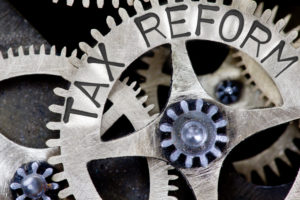Millionaire Taxes- The Debate is On

Millionaire Taxes- The Debate is On. How many people are millionaires in the United States? According to recent statistics the number of people in the country with a net income of $1 million or more reached 9.63 million in 2013. That might sound like a lot, but compared to the total U.S. population that number is actually quite small. Regardless, there is no argument that the wealthy are taxed more than the middle class. However, according to a recent report, many people who aren’t actually in the wealthy category are still being taxed like they are.
Targeting the Wealthy
Nearly a dozen states have either raised or tried to raise taxes on the wealthy recently, including both New Jersey and Illinois, who recently voted against such measures. However, since 2009, 10 states have either raised income taxes for all taxpayers or for those in the highest tax bracket. Another state, Washington, rejected an increase on the wealthy in 2010.
The Affluent Hurt the Most
Of course, the wealthy will always be taxed more, but most, if not all of these states are actually nailing those taxpayers in the affluent category as well. In fact, it seems that these so-called “millionaire taxes” are not just for millionaires. Often, people who make $200,000 are also hit with a higher tax rate and in some cases, such as in the state of Maryland, single people who make as little as $100,000 ($150,000 or more for joint filers) in a year are subject to a higher tax rate. In the recent past California and Minnesota have also adopted new tax brackets for those who make more than $250,000.
The Consequences
Many economists argue that taxing the wealthy is not a good way to help the economy, especially in the long run. Evidence suggests that forcing the wealthy to pay more taxes actually hurts the country’s productivity and its economic growth. Another problem that states face is losing companies altogether. Many corporations have recently packed up and moved from states with high corporate and income taxes to states where the tax bill is much lower.
Not Giving Up
However, despite the fact that there are several negative aspects of raising taxes for the wealthy, there are many who still think that’s the best method to help boost the economy and create more economic equality. That’s why so many states continue to introduce legislation designed to penalize the wealthy.
Never-Ending Battle
The bottom line, when it comes to the so-called “millionaire tax” the debate will never end. Those who think the wealthy should pay more will continue to argue their point. That includes lawmakers who will most certainly continue to push legislation aimed with that goal in mind. On the other side of the equation, those who oppose taxing the wealthy unfairly will continue to fight theses efforts.
GROCO – A Wise Investment
In any case, the wealthy are already heavily taxed, which means it’s important for them to utilize every tax break and advantage they can get in order to keep as much of their money as possible. That’s why contacting GROCO is a smart investment. We can help you maximize your tax planning and thereby get the most out of your income tax return.
We hope you found this article about “Millionaire Taxes- The Debate is On” helpful. If you have questions or need expert tax or family office advice that’s refreshingly objective (we never sell investments), please contact us or visit our Family office page or our website at www.GROCO.com. Unfortunately, we no longer give advice to other tax professionals gratis.
To receive our free newsletter, contact us here.
Subscribe to our YouTube Channel for more updates.
Considerately yours,
GROCO, GROCO Tax, GROCO Technology, GROCO Advisory Services, GROCO Consulting Services, GROCO Relationship Services, GROCO Consulting/Advisory Services, GROCO Family Office Wealth, and GROCO Family Office Services.

Alan L. Olsen, CPA, Wikipedia Bio

Proud sponsor of the AD Show.

Will True Tax Reform Happen in Our Lifetime?
Will True Tax Reform Happen in Our Lifetime? Will explorers ever truly discover the Fountain of Youth? Will the Cubs ever win the World Series? Will Elvis ever be found alive? There are so many questions that might not ever be answered in our lifetime. Here’s another one: will we ever see true tax reform…
Bookkeeping: What Kind of Records Should I Keep?
Bookkeeping: What Kind of Records Should I Keep? You may choose any recordkeeping system suited to your business that clearly shows your income and expenses. Except in a few cases, the law does not require any special kind of records. However, the business you are in affects the type of records you need to keep…
Tips to Help Taxpayers with January 31 Tax Season Opening
We are again suggesting some tips to help taxpayers with the January 31 tax season opening. The IRS will begin processing most individual income tax returns on Jan. 31 after updating forms and completing programming and testing of its processing systems. The IRS anticipated many of the tax law changes made by Congress under the…
Looks Like More Wealthy Americans Are Saying Goodbye to the U.S.
The country just got done celebrating its independence this past weekend. With fireworks and all kinds of parties, Americans celebrated to show their appreciation for one of the greatest gifts they have: Freedom. Most Americans are very proud of their citizenship, even if they don’t always like everything the about the laws of the land.…




